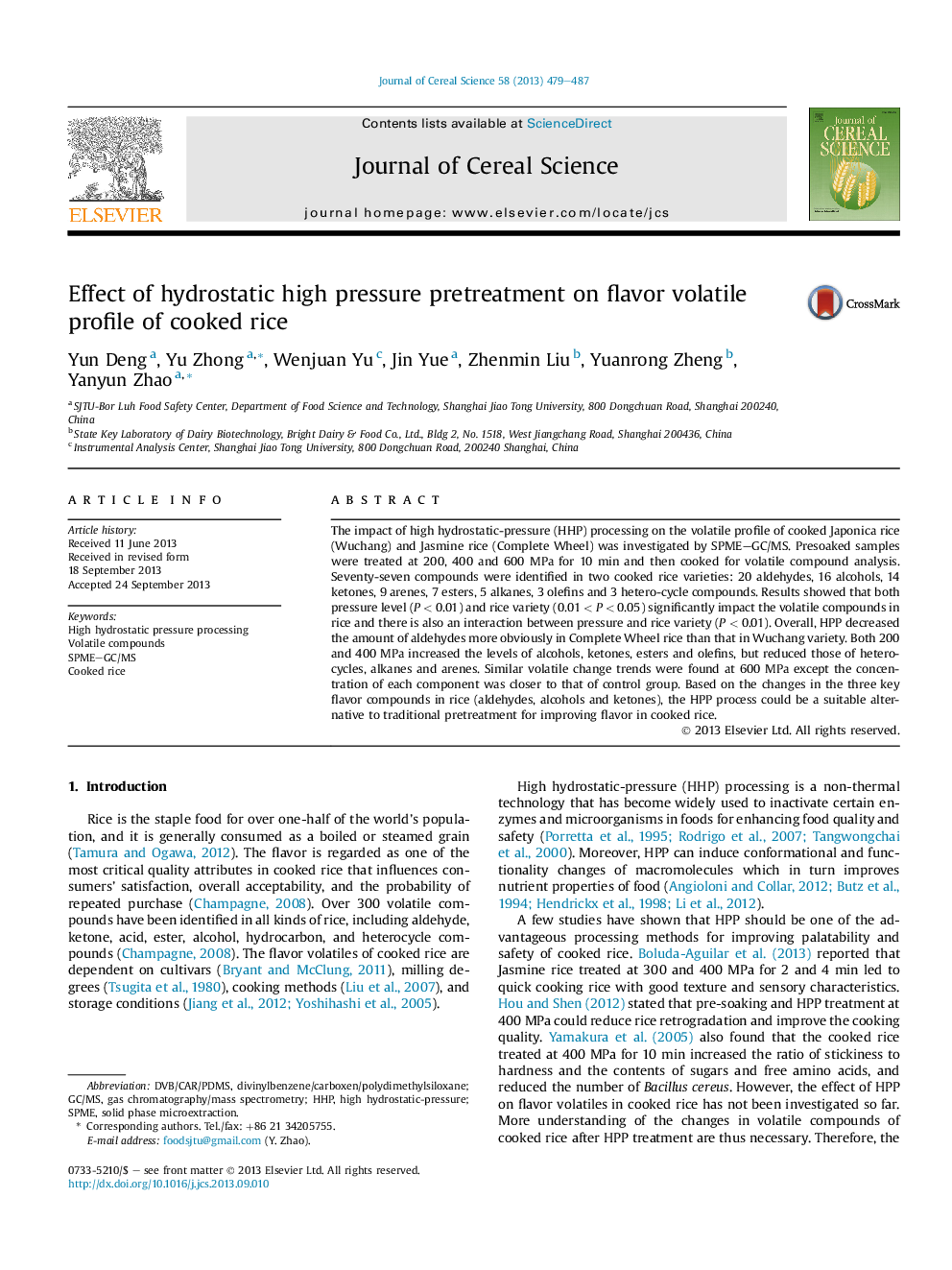| Article ID | Journal | Published Year | Pages | File Type |
|---|---|---|---|---|
| 4516002 | Journal of Cereal Science | 2013 | 9 Pages |
•Effect of high pressure on volatile profile of cooked rice was first investigated.•20 Aldehydes, 16 alcohols, 14 ketones, 9 arenes, 7 esters, 11 others were detected.•HPP decreased aldehydes more in Complete Wheel rice than in Wuchang variety.•200 and 400 MPa increased the levels of alcohols, ketones, esters and olefins.•200 and 400 MPa reduced the amount of heterocycles, alkanes and arenes.
The impact of high hydrostatic-pressure (HHP) processing on the volatile profile of cooked Japonica rice (Wuchang) and Jasmine rice (Complete Wheel) was investigated by SPME–GC/MS. Presoaked samples were treated at 200, 400 and 600 MPa for 10 min and then cooked for volatile compound analysis. Seventy-seven compounds were identified in two cooked rice varieties: 20 aldehydes, 16 alcohols, 14 ketones, 9 arenes, 7 esters, 5 alkanes, 3 olefins and 3 hetero-cycle compounds. Results showed that both pressure level (P < 0.01) and rice variety (0.01 < P < 0.05) significantly impact the volatile compounds in rice and there is also an interaction between pressure and rice variety (P < 0.01). Overall, HPP decreased the amount of aldehydes more obviously in Complete Wheel rice than that in Wuchang variety. Both 200 and 400 MPa increased the levels of alcohols, ketones, esters and olefins, but reduced those of heterocycles, alkanes and arenes. Similar volatile change trends were found at 600 MPa except the concentration of each component was closer to that of control group. Based on the changes in the three key flavor compounds in rice (aldehydes, alcohols and ketones), the HPP process could be a suitable alternative to traditional pretreatment for improving flavor in cooked rice.
